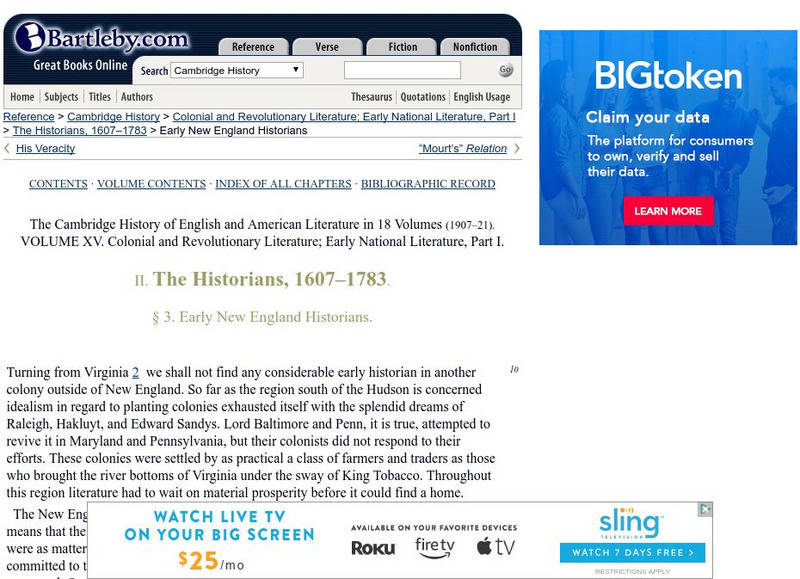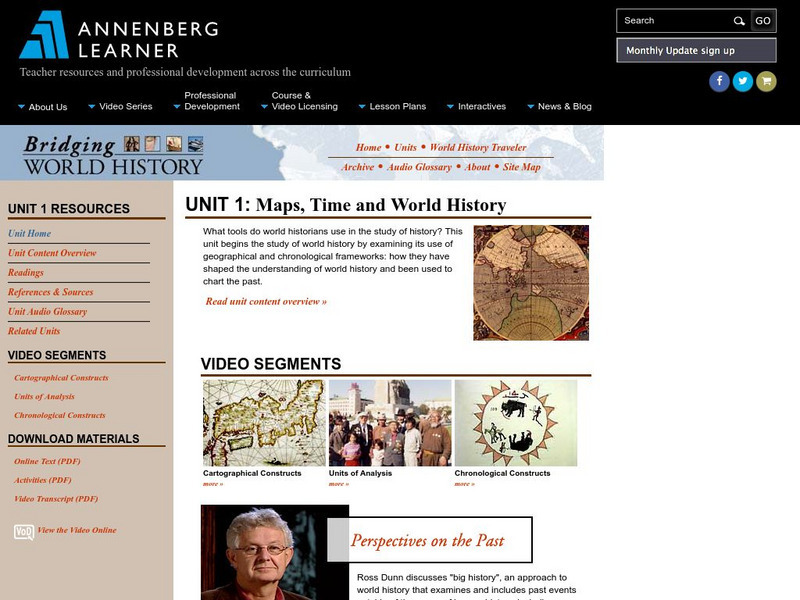University of North Carolina
History
The past helps to inform the present and the future—that's why the study of history is so important. The handout describes what historians do and why their jobs are meaningful. Readers learn about what to expect in a college-level...
Museum of the American Revolution
Pop-Up Museum
Museums offer more than interesting exhibits—they are key to keeping history alive. An immersive activity uses a virtual field trip to show academics the importance of museums in preserving history. Young historians learn how museums are...
National WWII Museum
The Red Ball Express: Statistics as Historical Evidence
Historians use all kinds of information to make conclusions ... including statistics. Young scholars examine how two historians evaluate The Red Ball Express—a supply line staffed primarily by African Americans—using numbers. The...
PBS
Before We Travel, We Research
Context is key when it comes to historical research. Prior to field research, class members learn as much as they can about the site they are going to visit. Groups investigate and prepare presentations about the history of the site, the...
Stanford University
What Is History?
Five important tenets of any social studies class are available for young historians with a poster that defines history as an account of the past. It encourages learners to question reliability of an author's perspective, as well as...
Curated OER
Fill in the Blanks
Archaeologists, historians, and scientists all work together to create a timeline of our past. Engages learners in a series of activities that all filter through the NOVA video, "Mysteries of the First Americans." Each activity is...
Curated OER
How Do We Learn About the Past?
Students examine archaeological discoveries. In this learning about the past lesson, students view a "Magic School Bus" video, discuss the role of an archeologist, and complete a graphic organizer. Students discuss a variety of artifacts...
Curated OER
What Counts as History?
Eighth graders explore the question "What Counts as History?" In this Philosophy lesson, 8th graders pretend that they are going to interview a historian. Students read a primary source and answer the questions that follow.
Curated OER
Historians Interpret Sources
Students read excerpts from the historian Conover Hunt writing about John F. Kennedy and from primary source documents using the handout: Historical Sources and Historians. Students discuss and identify source types, evaluate sources,...
Bartleby
Bartleby.com: Cambridge History of Eng and Am Lit: Early New England Historians
Describes the themes and writing style of early New England historians. Clicking on the names at the bottom of each page will take you to information about individual historians.
Annenberg Foundation
Annenberg Learner: Bridging World History: History and Memory
Are history and memory different? Peruse the various resources this unit provides for the way we view, know, and relate history to our family, our friends, and the world.
Annenberg Foundation
Annenberg Learner: Bridging World History: Maps, Time, and World History
Learn how map projections and chronological constructs are used in the study of world history and help us to understand and interpret the past. Part of a larger site on world history, this unit on maps offers complete reading,...
Smithsonian Institution
National Museum of American History: You Be the Historian
Exercise involves learners in figuring out what life was like two hundred years ago for the colonial American Springer family by examining objects and documents they left behind.
Bartleby
Bartleby.com: Later New England Historians
Describes the changing nature of historical writing during the later Colonial period in America.













